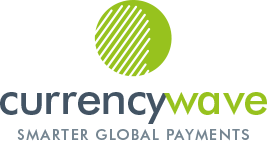English castles and the food industry have one thing in common: no matter what you throw at them, they still stand strong. Brexit introduced many uncertainties to food and drinks importers and exporters, with a rapidly changing political landscape and increasingly challenging negotiations between Britain and the European Union. As if this were not enough, COVID-19 swept the world in a way almost nobody could predict just a year ago. Even though the country is slowly returning to normality, some challenges are still there.
An increasing number of exporters find themselves in situations where they must now negotiate with importers based in less obvious corners of the planet. Companies must also navigate complex cultural and legislative jungles before any shipments can even leave the UK.
Fluctuating foreign exchange rates and the invisible cost of cross-border payments are one of those aspects that can quickly spin out of control if not managed properly. Whether you are a large London based multinational corporation or an innovative, medium sized food manufacturer in the north of England, both are often exposed to similar risks. However, for much smaller companies, tolerable levels of currency risk tend to be much lower.
Supply chain complexity
Up until recent years, many food and drinks manufacturers had simpler supply chains, but that is now no longer the case. The same way that exporters must seek new markets, importers can no longer rely on just EU member countries for their ingredients. The complexity of global supply chains has grown exponentially over the last couple of decades.
Many companies continue to seek competitive advantage by accessing more exotic and often lucrative regions with competitively priced produce and labour. The wider the network of countries an exporter or importer needs to manage, the more sophisticated the currency risk model needs to be. Ever changing situations in foreign countries can overwhelm even the most experienced and quickly cloud their otherwise sound decision-making process. If a company does not closely monitor political and economic developments, they leave themselves open to more risk.
Turbulent times also shorten the timeframe for longer term decisions. It has become increasingly difficult to plan and adjust operational models to rapidly changing situations all over the world. Relying on the grace of your bank may not be a minimal risk solution.
The global economic situation requires companies to be more creative on the sales side, whilst also keeping a more conservative approach towards currency risk modelling. Sometimes even well developed and stable markets can turn into uncharted waters that can be difficult to navigate.
Risk Management
For those companies with long term contracts and predictable order flow, forward exchange rates can help in managing longer term currency risk. If, at the beginning of the year, a drinks producer knows that they will have a spike in demand for their best-selling product in summer, they need to prepare for the delivery of the ingredients. During this period, currency exchange rates can change substantially and have a negative impact on the cost of their raw materials. Therefore, by fixing a forward rate to coincide with the anticipated future expenditure, the company can remove this risk altogether.
Sometimes it can be difficult to understand the full cost of an international transaction. It is not necessarily the most attractive exchange rate offered by the company’s bank, or even the hidden cost of the transaction itself, but the lack of advice to the client on what would be best solution in their situation.
CurrencyWave has been helping local companies in Yorkshire and beyond, not just with frictionless cross-border payments, but also by assisting with ways to lower currency risk and reduce the costs associated with it. With such uncertain times ahead of us, it is important to use all the available tools in the box to ensure that companies not only have sustainable operations, but also do not get punished financially when buying or selling their products in foreign markets.
More Insights